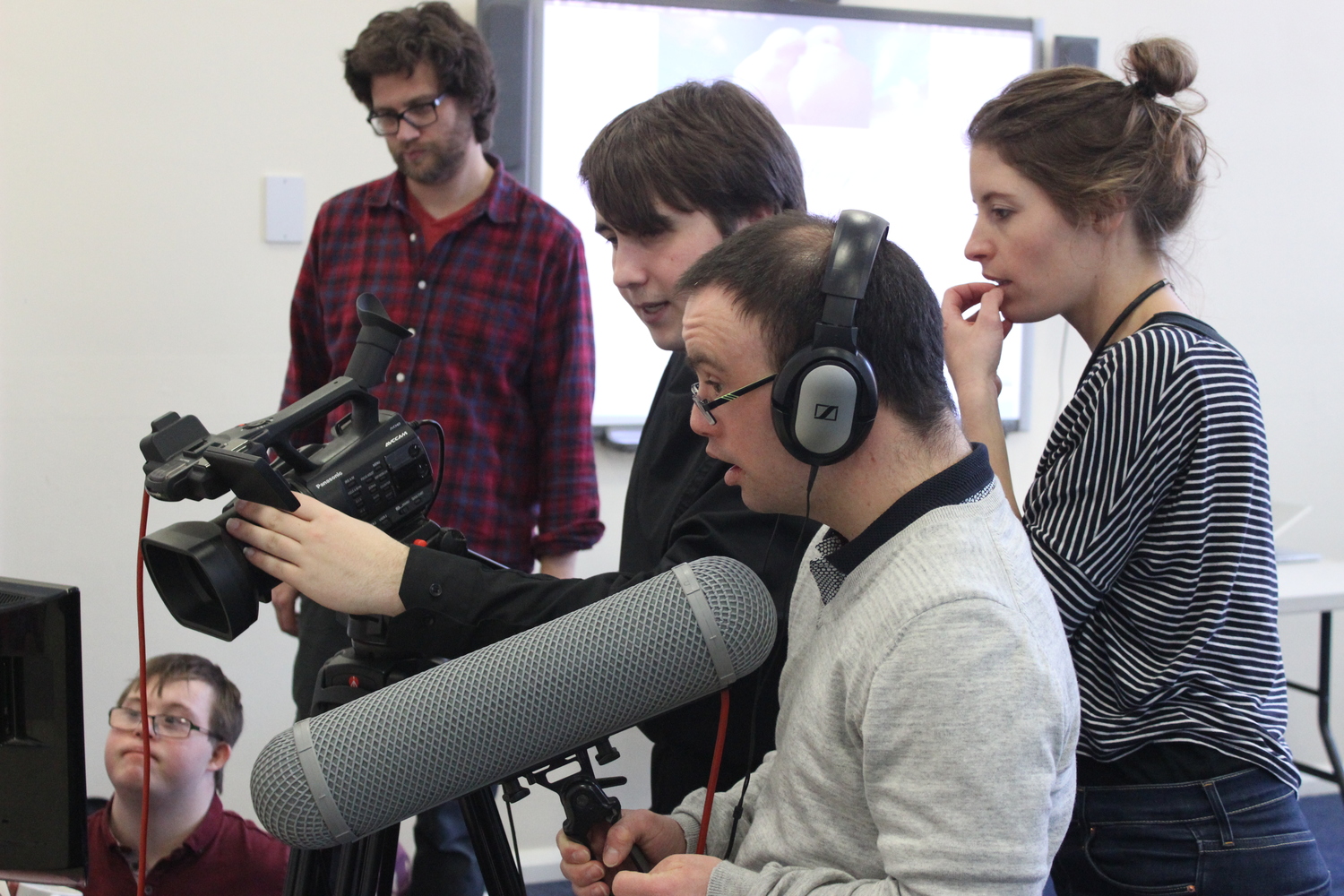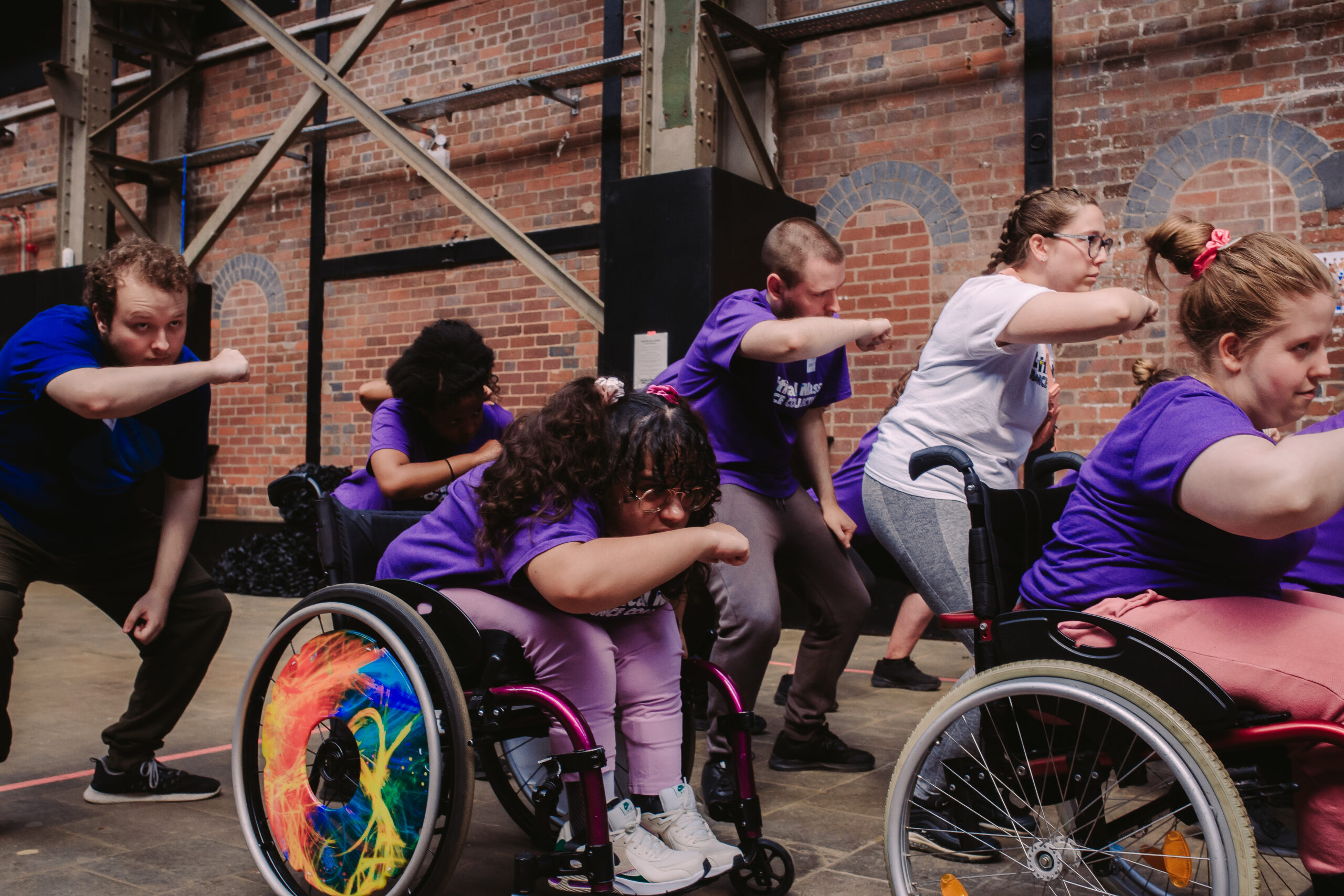
Making Events Work For Everyone
A new report from Spirit of 2012 which sets out insights, advice and recommendations for how UK events can be designed and delivered to be more inclusive, as well as how they can help foster a more inclusive society.


In recent years, the UK’s events landscape has made significant strides to become more inclusive for disabled people. Events like the Birmingham 2022 Commonwealth Games and London 2012 Olympic and Paralympic Games set ambitious inclusion goals, publicly addressing barriers to participation.
Yet we still have a long way to go before disabled and non-disabled people are able to participate in events in the UK as equals. Whilst awareness of the need for inclusivity and access is high, reality has yet to catch up.
This report brings together Spirit of 2012’s insights and learning from a decade of funding projects that have fuelled community pride, positivity and wellbeing, getting tens of thousands of people more active, creative and connected in their communities. Many of the projects and organisations we funded have had inclusion at their heart, with disabled people and non-disabled people taking part together as audience members, participants, volunteers and staff.
Events can be powerful tools to promote inclusion, and our ambition is for an events sector where inclusion is the norm, and is built into the fabric of events, rather than being bolted on during its delivery.
This report sets out insights, advice and recommendations for government, arms-length bodies, franchise holders, event organisers and delivery organisations on how UK events can be designed and delivered to be more inclusive, as well as how they can help foster a more inclusive society.
Susie Rogers MBEI do believe that sport plays a certain role in celebrating resilience, persistence and determination in both the Olympics and Paralympics and in the latter, to challenge perceptions on disability. Sport is not the answer to every problem in the world, as we all know, but it plays a big role in representation and competition between nations, underpinned by a core set of values to make the field of play as fair as possible. However, whilst these large-scale events are powerful throughout their duration, capturing the inspiration from athletes and the Games themselves, and translating this into wider society, requires us to view the Games not as a means to an end by winning medals for countries, but as a wider catalytic opportunity to inspire positive change and cohesion in society. Disabled people are amongst the most marginalised globally and frequently live in poverty due to compounding discrimination and barriers to their equal participation. Whilst attitudes may shift because of the Paralympics, more needs to be done at country levels to support the inclusion of all people with disabilities into work, society and beyond. This is where legacy is an integral part for countries hosting events such as the Olympics and Paralympics.
5-time Paralympic medallist & former Spirit of 2012 Board Member
KEY FINDINGS
KEY FINDINGS
- Event organisers and funders must ensure that inclusivity is embedded in the design and vision for an event from the very start – it is more effective to build it in from the beginning than it is to bolt it on. Event organisers should include disabled people in the team organising events, including in leadership and governance roles. It is crucial that the whole team involved in planning and delivering an event is committed to delivering it inclusively.
- Event organisers must consider the full journey of participation to make events truly inclusive, rather than just the event itself. This includes the marketing of an event, travel to and from it, as well as follow-up consultation and reflection. Organisers must communicate access provisions of an event clearly and in an accessible form.
- Event organisers should ensure that event staff and volunteers receive training on disability awareness, etiquette, and assistance techniques. This training should extend to disability equality and ableist training, identifying and challenging the structures that create and maintain barriers to disabled access and participation.
- Event organisers should engage in reflective practice throughout the lifecycle of an event, creating a feedback mechanism for disabled attendees to input at any stage, and using that feedback to improve both the event itself and any future events. If increasing inclusion is a stated aim of the project, the evaluation needs to measure the extent to which it has been achieved.
- Where events use volunteers, event organisers should engage and support disabled people to volunteer, funding high-quality volunteering opportunities. Volunteering contributes to better health and wellbeing outcomes, and promotes social connection.
- Making all of these recommendations a reality requires adequate funding at every stage. Funders should make delivering on inclusion commitments part of their grant conditions, but must back this up by providing sufficient resource to do this well. Funders must recognise the opportunity presented by events: the costs of equal participation vary depending on existing infrastructure, context and individual need, but sufficient ring-fenced funding can create long-lasting improvements to inclusion in host locations. The investment an event brings can be used to build infrastructure and implement access standards that carry on beyond the event.

